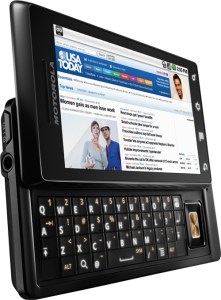
Sure, Verizon Wireless might be making great hay out of its expansive 3G coverage maps, but at least one new feature of Verizon mobile service has left some consumers with a bad taste in their mouths: early termination fees ranging from $175 to $350 for users who want to get out of their mobile contracts before they expire—with higher fees going to smartphones. And the feeds have at least on member of the Federal Communications Commission riled up too, with Commissioner Mignon Clyburn calling Verizon’s justifications for the fees “unsatisfying and, in some cases, troubling.”
The FCC has asked Verizon Wireless why it recently increased early termination fees; the company responded that the fees subsidize the costs of high-end handsets as well as the higher customer support and advertising costs involved in bringing those phones to market. When customers get out of their contracts early, Verizon Wireless winds up eating a portion of those costs that would have been paid back over the lifetime of a customers’ contract.
Commissioner Clyburn clearly wasn’t impressed, noting that Verizon Wireless is no longer claiming early termination fees are based on the true cost of the mobile device, but are now being used to cover costs associated with advertising, sales commissions, and store costs. “Consumers already pay high monthly fees for voice and data designed to cover the costs of doing business,” Clyburn wrote in a statement (PDF). “So when they are assessed excessive penalties, especially when they are near the end of their contract term, it is hard for me to believe that the public interest is being well served.”
Verizon’s Mobile Web browser also drew Clyburn’s ire. The application carries a usage fee for tapping into Web sites; although Verizon Wireless claims users don’t get charged for merely launching the application, Clyburn notes “many consumers have been charged phantom fees for inadvertently pressing a key on their phones thereby launching Verizon Wireless’s mobile Internet service.”
Clyburn’s concerns about termination and usage fees echoes consumer sentiment: although smartphones are the fastest growing segment of the mobile phone market, it’s not secret that times are tough and many consumers are trying to make their mobile dollars stretch as far as possible. In that environment, Verizon’s steep termination fees and gotcha billing for Web access casts Verizon in a predatory light: instead of trying to develop innovating products and services that earn customers’ loyalty, Verizon seems to be focussed on wringing dollars from consumers at every opportunity…even if those opportunities tread dangerously close to regulatory lines.
Editors' Recommendations
- Best Verizon new customer deals: Galaxy S24, iPhone and more
- Verizon just took a huge leap ahead in the 5G race
- Illegal robocall operation handed largest-ever fine by FCC
- Live in a rural area? Verizon 5G is about to get better for you
- Here’s another big reason why T-Mobile 5G dominates AT&T and Verizon


